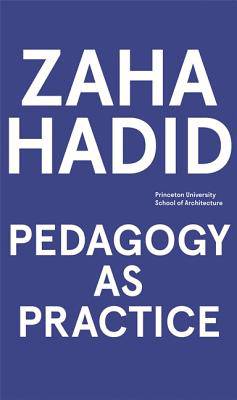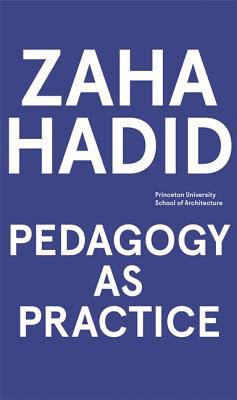
- Afhalen na 1 uur in een winkel met voorraad
- Gratis thuislevering in België vanaf € 30
- Ruim aanbod met 7 miljoen producten
- Afhalen na 1 uur in een winkel met voorraad
- Gratis thuislevering in België vanaf € 30
- Ruim aanbod met 7 miljoen producten
Zoeken
Zaha Hadid
Pedagogy as Practice
Mariana Ibanez, Greg Lynn, Beatriz Colomina, K. Michael Hays, Mark Wigley, Wolf Prix
€ 49,45
+ 98 punten
Omschrijving
An in-depth look at the influence of Zaha Hadid's pedagogy on her practice and the architecture field
The first woman to win the Pritzker Architecture Prize, and the designer of such landmarks as the Guangzhou Opera House in China and the Aquatics Center in London, Zaha Hadid (1950-2016) was one of the most innovative and imaginative pioneers in her field. While much has been said about Hadid's architectural work and influence on the discipline, little scholarship has been dedicated to her remarkable teaching trajectory and importance in academia. Zaha Hadid seeks to correct this historical oversight. Tracing the evolution of Hadid's pedagogy from her tenure at the Architectural Association in London to her instrumental positions at Harvard, Columbia, Yale, and the University of Applied Arts in Vienna, this volume reveals the significance of her scholarly pursuits in her built work. Highlights of the book include Hadid's years as a graduate student at the Architectural Association, a pivotal moment in the development of her reverse engineering of architecture-to-painting. Further insight into her time as a professor and mentor demonstrate how loyalty to her students nurtured an emerging generation of architects. Hadid cultivated these young designers and fostered an elastic ecology of professional offices bound by networked relationships that continue to have a strong impact on the field today. With a global perspective, this book is structured around four themes--Academic Contexts; Big Zaha, small Zaha; An Unfinished Modern Project; and Pedagogy in Practice--which demonstrate Hadid's pedagogical impact. Essays from a variety of contributors, including practitioners, historians, curators, and theorists, provide an understanding of the evolution of her pedagogy in relationship to her architectural production and form a scholarly foundation for future exploration.Specificaties
Betrokkenen
- Auteur(s):
- Uitgeverij:
Inhoud
- Aantal bladzijden:
- 160
- Taal:
- Engels
- Reeks:
Eigenschappen
- Productcode (EAN):
- 9780964264137
- Verschijningsdatum:
- 25/12/1940
- Uitvoering:
- Paperback
- Formaat:
- Trade paperback (VS)
- Afmetingen:
- 184 mm x 311 mm
- Gewicht:
- 666 g

Alleen bij Standaard Boekhandel
+ 98 punten op je klantenkaart van Standaard Boekhandel
Beoordelingen
We publiceren alleen reviews die voldoen aan de voorwaarden voor reviews. Bekijk onze voorwaarden voor reviews.








